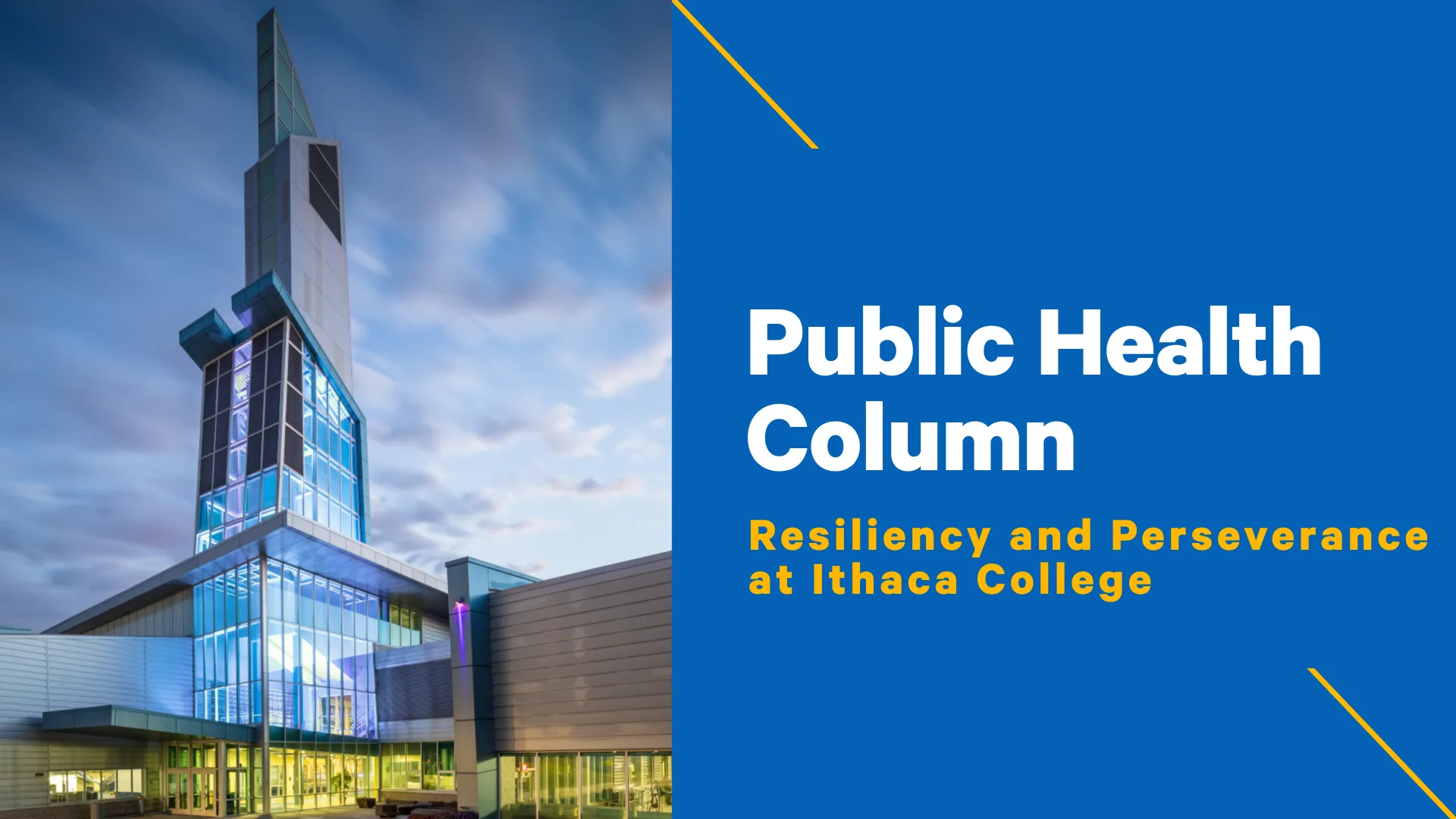In 1903, the City of Ithaca was ravaged by a devastating typhoid epidemic associated with contaminated drinking water that sickened about 10% of the local population. George C. Williams, president of the Ithaca Conservatory of Music at the time, recalled:
“It struck in January [1903] just before the opening of the spring term. All students rushed for their homes. All public gatherings were forbidden. There were over 1200 cases and about 100 deaths. If we could have closed the Conservatory at that time, we could have weathered the storm; but, as it was, we had all the teachers’ salaries to pay, besides rent and other running expenses…” (Harcourt, J.B. (1983). The Ithaca College Story. Ithaca College. p. 11)
And here we are, more than a century later, taking many of the same steps to adapt to a modern-day public health crisis that has operational implications for the college. This truncated history lesson—which glosses over more complex factors at play within the city during the typhoid incident—speaks to the enduring importance of public health, but also illustrates that resiliency and perseverance are a common theme in the history of this college.
It was disappointing to return to campus this fall unable to shed all the protective public health layers against COVID as we had hoped. However, this does not mean that there has not been progress. Our public health protections are not the same as the spring, as this would not have made sense given that vaccination has changed the broader context and trajectory of the pandemic. However, COVID is not over so we must continue to make trade-offs between constraining certain actions while simultaneously looking for pathways to move forward. Classes are in session. Athletic competitions are occurring. Clubs and social activities are underway. Admissions is holding tours. We had a family weekend!
COVID is still very much a part of our daily existence. Our individual behaviors and choices whether on or off campus do matter. Therefore, everyone’s continued efforts to hold COVID at bay, even though we’re all exhausted and tired of it, is critical to keeping campus open and operational.
There are many simple ways that you can “do your part.” Choose to have everyone age-eligible in your household vaccinated to protect you from hospitalization and reduce the risk of transmitting the virus to those around you. Complete your daily health screening. Ask a student to see their green IC Health Badge. Get tested if you’re randomly selected to do so, even though you feel fine. Get tested if you’re symptomatic, even if you’re vaccinated. Wear your face covering when you’re indoors without having to be asked. Speak up and request that others around you do the same.
It is heartening to see that our campus community is more collectively committed to public health than I suspect it realizes, and that this extends beyond COVID. For example, The Ithacan reported that our Public and Community Health Student Association (PCHSA) is experiencing a resurgence and, for any student who cares deeply about how social and environmental factors impact your well-being, that club is for you! The Student Governance Council hosted Ted Schiele from the Tompkins County Health Department regarding the importance of a smoke free campus. Faculty involved with our Center for Faculty Excellence advance anti-racist pedagogy through the antiracism institute and our Center for the Study of Culture, Race, and Ethnicity works to enhance curricular opportunities for those who are usually marginalized, under-represented, and/or misrepresented in normative curriculum. Finally, our sustainability efforts at the college to become carbon-neutral align well with the City of Ithaca’s recent vote to electrify and de-carbonize all of its homes and buildings by 2030. We haven’t explicitly stated as a college that we embrace a health in all policies approach, but the theme is apparent when you examine initiatives of importance to this campus community.
Yes, COVID remains a significant challenge that will demand our time and energy for the remainder of this academic year at least. Like the typhoid epidemic, it will someday be a historical milestone for the college and another testament to our personal and campus resiliency. The questions are: what have we learned and what positive change will it enable us to pursue moving forward?
Sincerely,
Christina Moylan
Associate Provost for Graduate and Professional Studies
